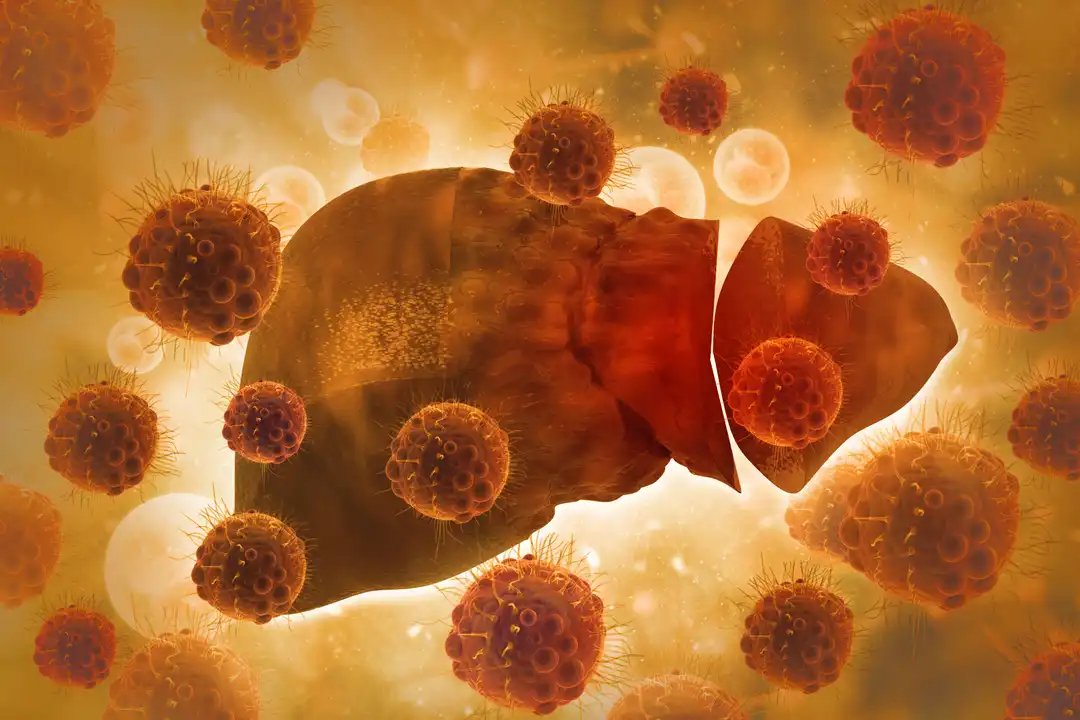Sagimet Biosciences Reports Positive Results in Phase 2b Trial of Denifanstat for F2/F3 NASH
24 January 2024 | Wednesday | News

Image Source : Public Domain
- Primary efficacy endpoints:
- NASH resolution without worsening of fibrosis with ≥2-point reduction in NAS (NAFLD Activity Score) in 36% of denifanstat-treated patients vs 13% with placebo (p=0.002)
- ≥2-point reduction in NAS without worsening of fibrosis in 52% of denifanstat-treated patients vs 20% with placebo (p=0.0001)
Denifanstat was generally well-tolerated
Gannex Pharma Co., Ltd., a wholly-owned subsidiary of Ascletis, holds the rights to develop, manufacture and commercialize denifanstat (ASC40) in Greater China under an exclusive license agreement with Sagimet Biosciences Inc.
Gannex Pharma Company Ltd ("Gannex"), a wholly-owned company of Ascletis Pharma Inc. (Ascletis, HKEX:1672), announced that its strategic partner, Sagimet Biosciences Inc. (Sagimet, Nasdaq: SGMT), today reported positive topline results from Sagimet's FASCINATE-2 Phase 2b clinical trial of denifanstat versus placebo in biopsy-confirmed non-alcoholic steatohepatitis (NASH) patients with stage 2 or stage 3 fibrosis (F2/F3) at week 52. In this trial, denifanstat, an oral, selective FASN inhibitor, showed statistically significant improvements relative to placebo on both of the primary endpoints of NASH resolution without worsening of fibrosis with ≥2-point reduction in NAS, and ≥2-point reduction in NAS without worsening of fibrosis. Denifanstat-treated patients also showed statistically significant fibrosis improvement by ≥ 1 stage with no worsening of NASH, and a greater proportion of MRI-derived proton density fat fraction (MRI-PDFF) ≥30% responders relative to placebo.
Gannex holds the rights to develop, manufacture and commercialize denifanstat in Greater China (where it is referred to as ASC40) under an exclusive license agreement with Sagimet. The press release announcing positive topline results from the Phase 2b FASCINATE-2 clinical trial can be found HERE and topline results from the trial can be found below.
Phase 2b FASCINATE-2 Topline Results
Statistical Significance Achieved in Primary Endpoints and Improvements Across Other Endpoints at Week 52 of Denifanstat Treatment
|
Denifanstat |
Placebo |
P-value vs |
|
|
Primary Endpoints |
|||
|
NASH resolution without worsening of fibrosis with ≥2-point reduction in NAS |
36 % |
13 % |
0.002 |
|
≥ 2-point decrease in NAS without worsening of fibrosis |
52 % |
20 % |
0.0001 |
|
Other Endpoints |
|||
|
Improvement of fibrosis by ≥ 1 stage with no worsening of NASH |
41 % |
18 % |
0.005 |
|
NASH resolution with no worsening of fibrosis |
38 % |
16 % |
0.002 |
|
AI digital pathology (qFibrosis)* |
-0.3 |
0.1 |
0.002 |
|
ALT % change from baseline |
-30.5 % |
-17.2 % |
0.03 |
|
MRI-PDFF responder rate** |
65 % |
21 % |
<0.0001 |
|
FibroScan AST (FAST) score |
-0.3 |
-0.1 |
<0.0001 |
|
LDL cholesterol (mg/dL)*** |
-19.1 |
-9.1 |
-- |
Modified intent-to-treat population (mITT) includes all patients with paired biopsies; includes Secondary Endpoints for which analysis has been completed as of the date of this press release.
* Artificial Intelligence (AI) digital pathology assessed by second harmonic generation (SHG, HistoIndex)
** MRI-PDFF responders are patients with ≥30% relative reduction of liver fat at the end of treatment
*** Baseline LDL-C greater than 100 mg/dL; exploratory analysis shown for n=32 and n=27 denifanstat and placebo patients, respectively
Safety and Tolerability
As in prior studies, no treatment-related serious adverse events (SAEs) were observed, and the majority of adverse events (AEs) were mild to moderate in nature (Grades 1 and 2). There were no Grade ≥3 treatment-related AEs. The most common treatment-related AEs by system organ class (observed in ≥5% of patients in the study) were eye disorders (denifanstat 15.2%, placebo 16.1%), gastrointestinal disorders (denifanstat 11.6%, placebo 8.9%), and skin and subcutaneous tissue disorders (denifanstat 22.3%, placebo 7.1%). The incidence of treatment emergent adverse events (TEAEs) leading to treatment discontinuation was 19.6% in the denifanstat group compared to 5.4% in placebo.
Most Read
- How Does GLP-1 Work?
- Innovations In Magnetic Resonance Imaging Introduced By United Imaging
- Management of Relapsed/Refractory Multiple Myeloma
- 2025 Drug Approvals, Decoded: What Every Biopharma Leader Needs to Know
- BioPharma Manufacturing Resilience: Lessons From Capacity Expansion and Supply Chain Resets from 2025
- APAC Biopharma Review 2025: Innovation, Investment, and Influence on the Global Stage
- Top 25 Biotech Innovations Redefining Health And Planet In 2025
- The New AI Gold Rush: Western Pharma’s Billion-Dollar Bet on Chinese Biotech
- Single-Use Systems Are Rewiring Biopharma Manufacturing
- The State of Biotech and Life Science Jobs in Asia Pacific – 2025
- Asia-Pacific Leads the Charge: Latest Global BioSupplier Technologies of 2025
- Invisible Threats, Visible Risks: How the Nitrosamine Crisis Reshaped Asia’s Pharmaceutical Quality Landscape
Bio Jobs
- Sanofi Turns The Page As Belén Garijo Steps In And Paul Hudson Steps Out
- Global Survey Reveals Nearly 40% of Employees Facing Fertility Challenges Consider Leaving Their Jobs
- BioMed X and AbbVie Begin Global Search for Bold Neuroscience Talent To Decode the Biology of Anhedonia
- Thermo Fisher Expands Bengaluru R&D Centre to Advance Antibody Innovation and Strengthen India’s Life Sciences Ecosystem
- Accord Plasma (Intas Group) Acquires Prothya Biosolutions to Expand Global Plasma Capabilities
- ACG Announces $200 Million Investment to Establish First U.S. Capsule Manufacturing Facility in Atlanta
- AstraZeneca Invests $4.5 Billion to Build Advanced Manufacturing Facility in Virginia, Expanding U.S. Medicine Production
News











